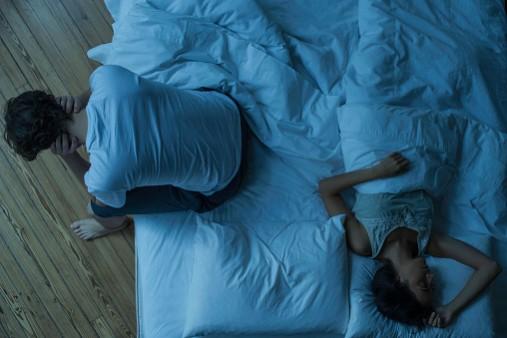
Insomnia or just extreme levels of sleep deprivation could eventually prove to be more harmful than we think. While it can completely ruin one's physical and mental state – leaving them feeling dysfunctional and in a haze, there haven't been any recorded instance of it killing someone.
Past studies on total sleep deprivation had required subjects to be awake for 24 to 72 hours. At the same time, even the worst of insomniacs eventually end up going into a state of microsleep and continue to snooze until and unless they are prevented from doing so by external forces.
Also read: Foods to avoid to get better sleep at night
A 1980 research on sleep deprivation in rats, conducted by the University of Chicago, resulted in the death of every single one of them after a span of 32 days. Some had died from their body temperatures dropping to hypothermic levels, while others died of brain damage.
Similar follow-up studies have been conducted since then, and while they don't particularly conclude the rats' cause of death to be from sleep deprivation, they all had similar symptoms and eventually died after a period of no sleep at all.
![[Representational Image] Get a good night's sleep by following these four steps. Insomnia](https://data1.ibtimes.co.in/en/full/677146/insomnia.jpg?w=508&h=339&l=50&t=40)
The research sounds like a rather cruel way for the rats to end their lives, but it also managed to shed some light on whether the same applies to humans. While it's certain that the same effects would be eventually seen in humans and their bodies would shut down too, it still hasn't been established whether we would take the exact amount of time to die when not slept.
It is to be noted that sleep is the time when our body repairs and recovers, so taking that away would definitely have a hugely negative impact on us.
The CIA used a method of sleep deprivation on prisoners at Guantanamo Bay as a method to 'break' them into confessing. As per their reports, this was a 'safe' way to pressure their detainees. And again – as cruel as it seems – it has proven that for the most part, ill effects of sleep deprivation can be reversed without lasting damage.

However, a stark exception to this rule is the FFI, or Fatal Familial Insomnia. A condition that's only been seen in 40 families worldwide. The symptoms of FFI usually start with hallucinations, panic attacks, and mild insomnia.
This quickly escalates into getting no sleep at all and the eventual death occurs sometime between 7 and 36 months from the onset of the illness.

















